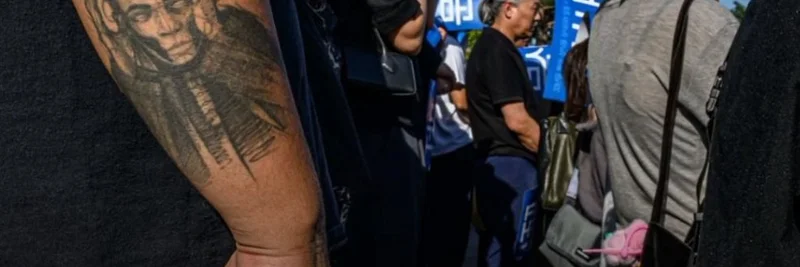In a move that's buzzing across social media and beyond, South Korea has officially legalized tattooing by non-medical professionals, ending a 33-year ban that dates back to 1992. This historic shift, passed by the National Assembly on September 25, 2025, isn't just about ink and art—it's a symbol of the country's evolving cultural and regulatory landscape. And for those in the crypto world, especially attendees of Korea Blockchain Week (KBW) this month, it could hint at bigger things ahead for decentralized finance (DeFi) and even meme tokens.
The news broke with excitement on X (formerly Twitter), where user @hnxyn_ shared the announcement, highlighting its significance despite expecting little attention from tech-focused circles. They posted: "no one on twitter is gonna care about this cus everyone here only cares about their insular tech circles but i’m gonna post anyway because 🇰🇷🇰🇷🇰🇷🇰🇷🇰🇷 KOREA LEGALISED TATTOOING TODAY AFTER A 33-YR MF BAN 🇰🇷🇰🇷🇰🇷🇰🇷🇰🇷 historic."
This post was then quoted by @edgarpavlovsky, who connected the dots to the blockchain community: "might feel a little out of our scope, but if you were at KBW this week and are thinking about how to push Korea to properly adopt defi and join us on the next generation of financial rails - this is relevant proud of Korea for moving forward 🇰🇷🇰🇷."
For context, DeFi refers to decentralized finance, a blockchain-based system that allows peer-to-peer financial services without traditional banks, using smart contracts on networks like Ethereum or Solana. South Korea has been cautious with crypto regulations, often prioritizing investor protection amid past scandals. Events like KBW, a major gathering for blockchain enthusiasts, spotlight the nation's potential as a hub for Web3 innovation.
Why does tattoo legalization matter to crypto? It's all about mindset. Tattooing was long classified as a medical procedure, restricting it to licensed doctors and forcing artists underground. Lifting this ban after decades shows South Korea's willingness to modernize outdated rules, embrace cultural freedoms, and adapt to global trends. Similarly, the country could loosen its grip on crypto, fostering growth in DeFi protocols and meme tokens—those fun, community-driven cryptocurrencies like Dogecoin or newer Solana-based ones that often start as jokes but build real value.
Meme tokens thrive on viral culture and community engagement, areas where Korea's K-pop and gaming scenes already excel. With this cultural thaw, we might see more Korean creators diving into NFT art (non-fungible tokens, digital collectibles on the blockchain) tied to tattoos or pushing meme coin projects that celebrate local heritage. Imagine a meme token inspired by traditional Korean motifs, gaining traction as regulations ease.
Of course, the new tattoo law won't kick in immediately—it includes a two-year grace period for artists to get licensed through exams and training on safety and hygiene. But it's a step forward, much like gradual crypto reforms. For blockchain practitioners, this is a reminder to watch Korea closely. As the nation opens up, opportunities in DeFi lending, yield farming (earning rewards by providing liquidity to protocols), and meme-driven ecosystems could explode.
At Meme Insider, we're all about decoding these shifts to help you stay ahead in the wild world of meme tokens and blockchain tech. Whether it's regulatory wins or cultural milestones, they all feed into the bigger picture of adoption. What's your take—could this be the catalyst for Korea's DeFi boom? Drop your thoughts in the comments below.



